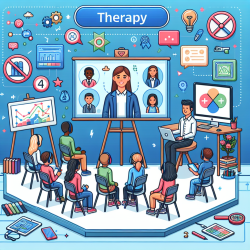Empowering Change: Family-Based Interventions for a Brighter Future
In the journey of creating better futures for children, particularly immigrant youth, family-based interventions have emerged as a powerful tool. The recent scoping review titled Family-based Interventions of Preventing Substance Use Among Immigrant Youth: A Scoping Review sheds light on how these interventions can prevent substance use among immigrant youth, highlighting the importance of parental involvement and cultural adaptation.
The Power of Family-Based Interventions
Family-based interventions have shown significant promise in addressing the challenges faced by immigrant youth. The review analyzed 13 studies and found that interventions involving both parents and youth were effective in delaying substance use initiation. These interventions leverage the eco-developmental theory, which emphasizes the influence of multi-level social systems on individual behavior, recognizing parents as pivotal in shaping their children's futures.
Cultural Adaptation: A Key Component
Cultural adaptation is crucial in making interventions relevant and effective for immigrant families. By addressing both surface and deep structure cultural dimensions, interventions can better resonate with the target population's values and norms. This includes translating materials into native languages and incorporating culturally relevant content, which enhances participant engagement and improves outcomes.
Active Learning and Parental Involvement
Active learning strategies, such as group discussions and role-playing, are integral to these interventions. They provide parents with practical skills and knowledge to better communicate and connect with their children. The review highlights that such strategies, combined with parental involvement in school activities, can significantly reduce substance use among youth.
Implications for Practitioners
Practitioners working with immigrant families should consider implementing family-based interventions that are culturally adapted and involve active learning components. By focusing on enhancing family communication and parental monitoring, these interventions can create a supportive environment that discourages substance use.
For those interested in further exploring this topic, the original research paper provides a comprehensive overview of the interventions studied and their outcomes. To read the original research paper, please follow this link: Family-based Interventions of Preventing Substance Use Among Immigrant Youth: A Scoping Review.










